Job Renewable

How do climate goals affect the economy and job market ?
Climate goals, aiming to reduce greenhouse gas emissions and promote renewable energy sources, significantly impact the economy and job market. The growth of the renewable energy sector creates new business opportunities and jobs, while carbon pricing mechanisms incentivize companies to invest in cleaner technologies. Green infrastructure investments stimulate economic growth by creating jobs and improving public health. However, achieving climate goals can also displace workers in fossil fuel-dependent industries, necessitating support and training programs for transitioning into new roles within the green economy. Education and training focused on sustainability and renewable energy are crucial to meet the demands of the changing job market. Overall, prioritizing climate goals presents challenges but also offers numerous opportunities for economic growth and job creation in industries related to sustainability practices.
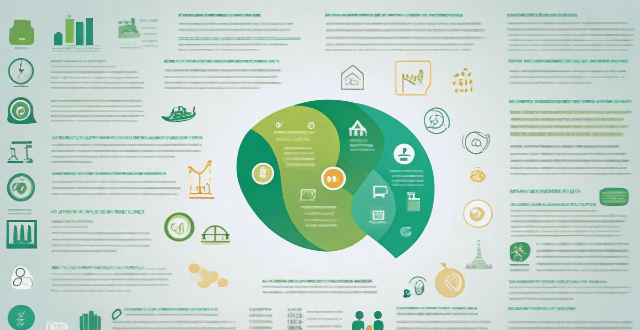
How will climate change influence future job markets ?
The article discusses how climate change will influence future job markets. It highlights the increased demand for green jobs, a shift toward resilient industries, and potential declines in certain sectors that contribute to greenhouse gas emissions or rely heavily on fossil fuels. Additionally, remote work opportunities may rise due to extreme weather events and environmental concerns. The article concludes by emphasizing the need for individuals and organizations to adapt to these changes in the job market.

How does automation affect job security ?
Automation affects job security by increasing efficiency, causing job displacement, creating a skill gap, and generating new job opportunities. To mitigate its effects, individuals should continuously learn and adapt, while organizations should offer reskilling programs and implement progressive policies.

How does climate change influence job security in coastal regions ?
Climate change significantly impacts job security in coastal regions through direct effects such as sea level rise, increased storm intensity, and changes in ocean temperatures. These environmental changes directly affect industries like fishing, tourism, agriculture, and infrastructure, leading to job losses or reduced hours for employees. Indirectly, climate change can cause economic displacement, public health concerns, and policy changes that create new job opportunities while potentially reducing jobs in other sectors. Addressing these challenges requires coordinated efforts from various stakeholders to adapt to changing conditions and transition towards more resilient economic systems.
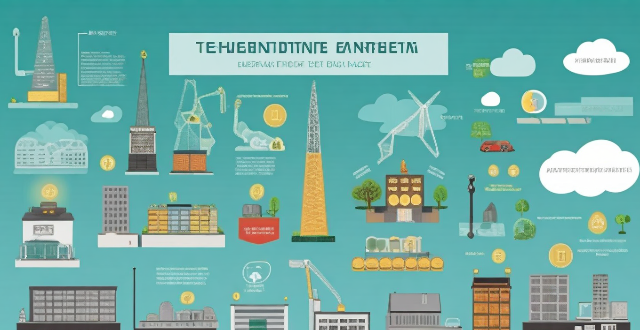
How is renewable energy affecting the traditional energy market ?
Renewable energy sources are having a significant impact on the traditional energy market, affecting pricing, market share, job creation, and environmental concerns. The increased efficiency and reduced installation costs of renewable technologies have made them more competitive with traditional energy sources, leading to declining electricity prices overall. Additionally, the growing demand for renewable energy sources has led to an increase in their market share, particularly for solar and wind power. The transition to renewable energy is also creating new job opportunities across various sectors of the economy, while addressing environmental concerns associated with fossil fuel consumption.

How has social distancing impacted the economy and job market ?
Social distancing measures have had a significant impact on the economy and job market, including decreased consumer spending, supply chain disruptions, high unemployment rates, increased demand for remote work, and changes in job seeking behavior.

How will AI impact the job market in the future ?
The impact of AI on the job market is multifaceted. While it brings opportunities for increased efficiency and novel professions, it also presents challenges related to job displacement, skill shifts, inequality, and the need for adaptive policies. The future of work in an AI-driven world will require a collaborative effort from individuals, businesses, and governments to navigate these changes effectively.

How can developing countries benefit from implementing renewable energy solutions ?
Renewable energy solutions offer significant benefits for developing countries, including reduced energy costs, job creation, improved health and environmental quality, increased energy security, and climate change mitigation. By investing in renewable energy infrastructure, these countries can build more sustainable and prosperous futures for themselves and their citizens.

What role do renewable energy sources play in combating climate change ?
Renewable energy sources play a crucial role in combating climate change by reducing greenhouse gas emissions, promoting sustainable development, creating job opportunities, and enhancing energy security. Solar, wind, hydropower, and other renewable energy sources are clean and sustainable alternatives to fossil fuels. By investing in these sources, we can slow down the rate of climate change and create a cleaner, more sustainable future for all.
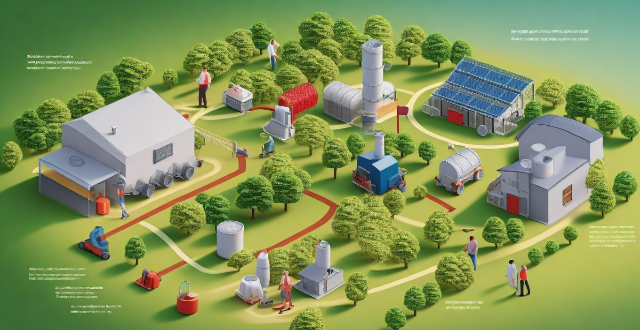
What role do renewable energies play in achieving climate objectives ?
Renewable energies play a crucial role in achieving climate objectives by reducing greenhouse gas emissions, promoting energy security, and driving economic growth. By transitioning to renewable sources such as solar, wind, hydro, and geothermal power, we can reduce the overall carbon footprint of our energy systems and mitigate the effects of climate change. Renewable energies also promote energy security by diversifying energy sources, increasing local energy production, and stabilizing energy prices. Additionally, the transition to renewable energies creates job opportunities, stimulates innovation, and attracts investment, contributing to economic growth. Overall, prioritizing the development and adoption of renewable energy technologies is essential for achieving a cleaner, more sustainable future.
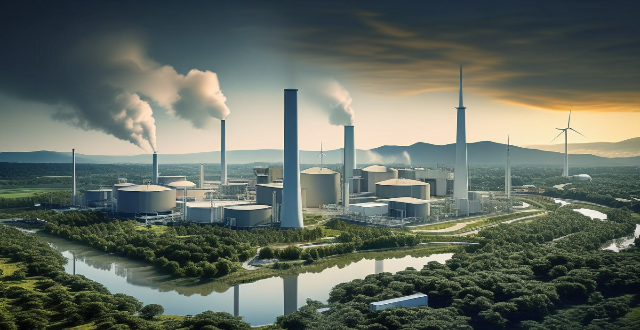
What is the impact of renewable energy on emission reduction goals ?
The shift to renewable energy sources such as solar, wind, hydro, and geothermal power is vital for reducing greenhouse gas emissions and achieving global emission reduction goals. This transition brings multiple benefits including decreased reliance on fossil fuels, improved air quality, enhanced energy security, economic stimulation through job creation and long-term cost savings, technological innovation leading to reduced costs, and significant contributions to mitigating climate change. As technology advances and economies of scale are achieved, renewable energy's role in facilitating further progress toward emission reduction objectives will become increasingly important.
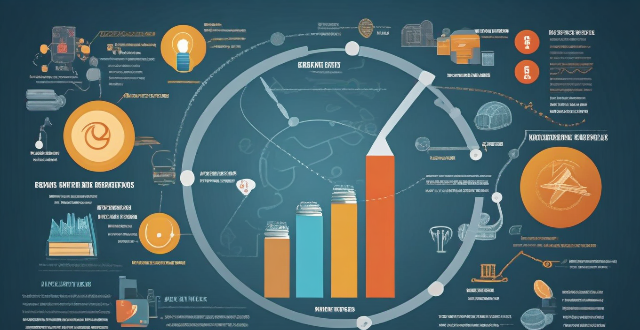
What are the benefits of using renewable energy sources for improving energy efficiency ?
Renewable energy sources offer multiple benefits, includingRenewable energy sources offer multiple benefits, including improved air quality, cost savings Renewable energy also provides stable energy prices and reduces dependence on imported fossil fuels, leading to greater energy security. Additionally, the development and deployment of renewable energy technologies create jobs and drive innovation and research in new technologies. Overall, investing in renewable energy is crucial for a sustainable future.

How does private equity impact job creation and retention ?
Private equity (PE) has a significant impact on job creation and retention, primarily through investing in underperforming companies, supporting startups and small businesses, and engaging in strategic acquisitions and mergers. PE firms also contribute to job retention by providing stable funding, investing in employee training programs, and participating in succession planning. While some argue that PE prioritizes short-term profits over long-term job growth, others contend that PE plays a crucial role in promoting economic stability and workforce development.
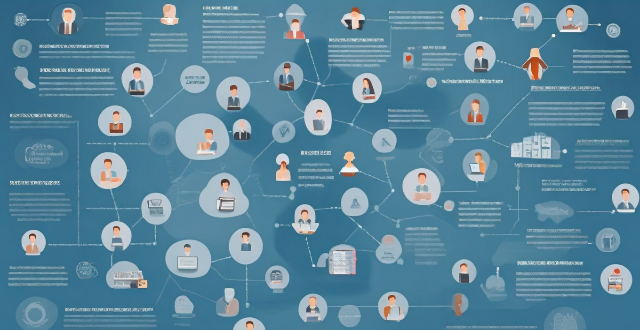
How might a lunar base influence the global economy and job market ?
The establishment of a lunar base could significantly impact the global economy and job market by increasing investment in space technology, creating new industries, driving innovation, and fostering international collaboration. It could also create numerous job opportunities and expand educational opportunities focused on space-related disciplines.
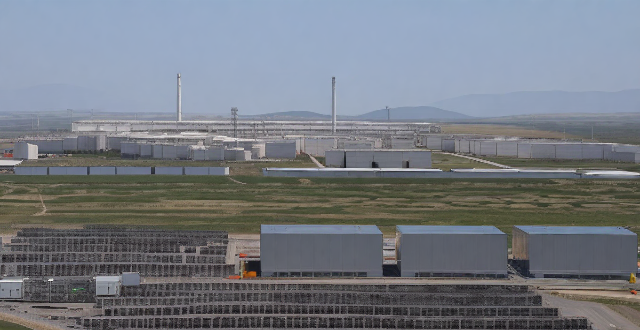
What are the benefits of using lithium-ion batteries in renewable energy systems ?
The benefits of using lithium-ion batteries in renewable energy systems include high energy density, long lifespan, low maintenance, fast charging, and high efficiency. These advantages make them an ideal choice for storing and distributing renewable energy.

What steps can governments take to promote renewable energy jobs ?
Governments can promote renewable energy jobs through various policies and incentives. They can implement regulations like Renewable Portfolio Standards, Feed-in Tariffs, Net Metering Laws, and Renewable Energy Certificates. Financial incentives such as tax credits, grants, loans, and investment tax exemptions can also be provided. Governments can support research and development by funding studies, collaborating with academia, forming public-private partnerships, and supporting startups. Education and training programs, infrastructure development, streamlining permitting processes, encouraging local production and consumption, and international cooperation are other steps that can be taken to promote renewable energy jobs.
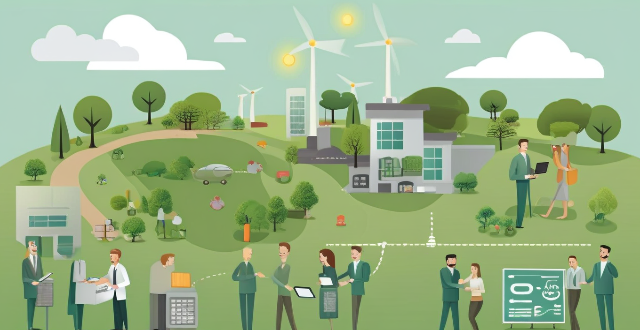
What role do renewable energies play in the energy transition process ?
The role of renewable energies in the energy transition process is to help decarbonize the power sector, promote sustainability, provide economic benefits, improve energy security, and enhance public health. Renewable sources like solar, wind, hydropower, and geothermal emit little to no greenhouse gases during operation, making them crucial for reducing carbon emissions associated with electricity generation. These sources are also sustainable as they are replenished naturally and do not deplete over time. Investing in renewable energies can lead to job creation, technological innovation, and cost savings in the long run. By diversifying energy sources, countries can reduce their dependence on imported fuels and enhance their energy security. Additionally, renewable energies have lower environmental impacts than fossil fuels, leading to improved air quality and public health benefits.
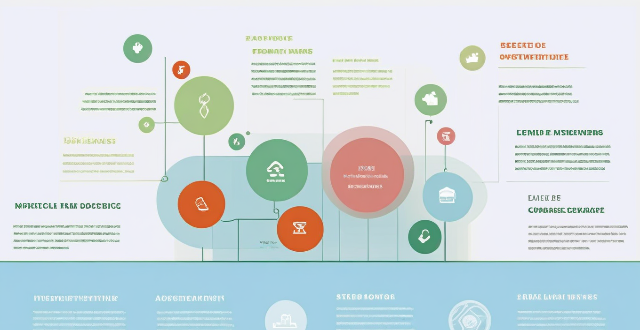
How does renewable energy contribute to reducing carbon emissions ?
Renewable energy is crucial for mitigating climate change by reducing carbon emissions. It displaces fossil fuels, lowers emissions intensity, improves energy efficiency, and reduces system leaks. Benefits include mitigating climate change, improving air quality, and offering economic advantages such as job creation and savings on fuel costs.

What are the job prospects for fitness instructors ?
The fitness industry is experiencing steady growth, driven byThe fitness industry is experiencing steady growth, driven by of regular exercise, rise in This growth has led to a rise in job opportunities for fitness instructors across various settings such as gyms, corporate wellness programs, community centers, and online platforms. Fitness instructors can also expect career growth through specialization, certification, management, or entrepreneurship. Overall, the job prospects for fitness instructors are promising with numerous opportunities for career advancement.

What impact does decentralized renewable energy have on the electric grid ?
Decentralized renewable energy sources, such as solarDecentralized renewable energy sources, such as solarbines, have a significant such as solar panels and wind turbines, have a significant impact on the electric grid. They reduce dependence on centralized generation, affect grid stability and reliability, require infrastructure changes, have economic implications, provide environmental benefits, and empower communities. As technology advances and costs decrease, decentralized renewable energy is expected to be increasingly adopted worldwide, offering numerous benefits in terms of sustainability, development, and community control over energy sources.

What is the role of renewable energy in achieving carbon neutrality ?
Renewable energy is crucial for achieving carbon neutrality, which involves balancing carbon emissions with offsetting actions. By reducing reliance on fossil fuels and greenhouse gas emissions, renewable sources such as wind and solar contribute significantly to this goal. Renewable energy also promotes energy efficiency, economic growth, and energy independence while mitigating climate change impacts. It supports sustainable development goals and fosters innovation and public engagement in environmental issues. The transition to renewable energy offers long-term environmental benefits, making it essential for a sustainable future with stable climates, thriving economies, and healthier societies.
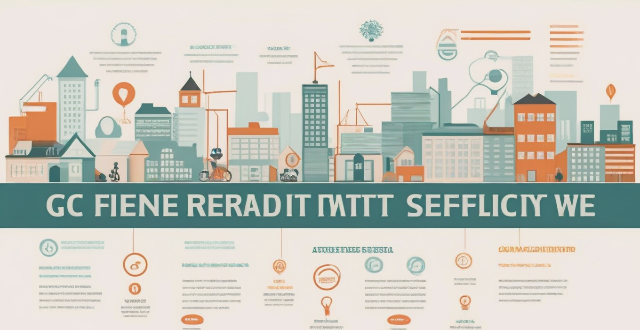
How do exercise programs impact employee productivity and job satisfaction ?
Exercise programs have a significant impact on employee productivity and job satisfaction. Companies can improve employee health, reduce stress levels, enhance team building, increase energy levels, improve mental clarity and cognitive function, reduce absenteeism and tardiness, enhance work-life balance, increase motivation and engagement, and improve company culture and retention rates by promoting a healthy lifestyle and providing opportunities for physical activity. Implementing exercise programs should be considered a valuable investment for any organization looking to improve its overall performance and success.

What is the public opinion on renewable energy policies and their implementation ?
Renewable energy policies have garnered significant attention as global efforts to combat climate change intensify. Public opinion is divided, with proponents highlighting environmental and economic benefits, while critics focus on costs and reliability concerns. Key aspects include: - **Support**: Backed by concerns for the environment and economic growth through innovation. - **Opposition**: Arises from perceived high costs, market distortions, and questions about renewable energy's reliability. - **Implementation Challenges**: Include technological advancements, infrastructure needs, and the necessity for consistent political support. - **Public Participation**: Education and active community involvement are crucial for building consensus and effective policy implementation.

How can we prepare for the changing job landscape in the future ?
The future job landscape is constantly evolving, and it's important to stay ahead of the curve. Here are some ways to prepare for the changing job landscape: 1. **Continuous Learning**: Upskill or reskill to remain relevant in the job market, take advantage of online courses, and attend workshops and seminars related to your field. 2. **Adaptability**: Embrace change, be open to new ideas, and be flexible in your job search. 3. **Networking**: Build professional relationships, attend events, join professional organizations, and connect with people on platforms like LinkedIn. Conduct informational interviews with professionals in your field. 4. **Technology Proficiency**: Stay tech-savvy and familiarize yourself with popular tools and software used in your industry. Consider learning basic coding skills. 5. **Personal Branding**: Establish an online presence through platforms like LinkedIn, Twitter, and personal websites. Showcase your expertise by publishing articles and participating in discussions. By focusing on these areas, you can position yourself for success in the ever-evolving job market.

How does a sedentary lifestyle affect job productivity and overall health ?
This article discusses the negative impacts of a sedentary lifestyle on job productivity and overall health. It outlines how prolonged periods of sitting can lead to decreased energy levels, impaired cognitive function, and increased stress and anxiety in the workplace. It also highlights the increased risk of chronic diseases such as heart disease, diabetes, and obesity, as well as musculoskeletal issues and poor mental health associated with a sedentary lifestyle. The article concludes by emphasizing the importance of incorporating regular physical activity into daily routines and maintaining a healthy work-life balance to improve job performance and overall well-being.

How does Fintech influence the job market in the finance industry ?
The influence of fintech on the job market in the finance industry has led to the creation of new roles and changes in the skillset required for existing positions. Fintech companies have increased demand for software developers, data scientists, and cybersecurity experts. Additionally, specialized financial roles like fintech startup founders, regulatory compliance officers, and customer experience managers have emerged. Traditional finance roles such as bankers, accountants, and investment advisors now require proficiency in digital tools and an understanding of automation and data analytics. As technology continues to advance, the finance industry workforce will need to adapt continuously to stay relevant in the changing job market.

What are the current trends in renewable energy policies globally ?
The global community is increasingly prioritizing renewable energy policies as part of efforts to combat climate change and reduce carbon emissions. Governments are offering financial incentives, setting ambitious targets for renewable energy consumption, promoting energy efficiency, and encouraging private sector investment in clean energy projects. These trends reflect a worldwide commitment to creating a more sustainable future through the adoption of renewable energy sources.

How can we ensure job security in an ever-changing employment landscape ?
In the ever-changing employment landscape, job security is a concern for many professionals. To maintain job security, strategies such as continuous learning, adaptability, networking, performance orientation, personal branding, career planning, financial planning, and mental health management are recommended. These approaches can help professionals stay relevant, demonstrate value, build a positive image, set clear goals, save for emergencies, manage stress, and seek support when needed. By implementing these strategies, individuals can increase their resilience and adaptability, enhancing their job security.
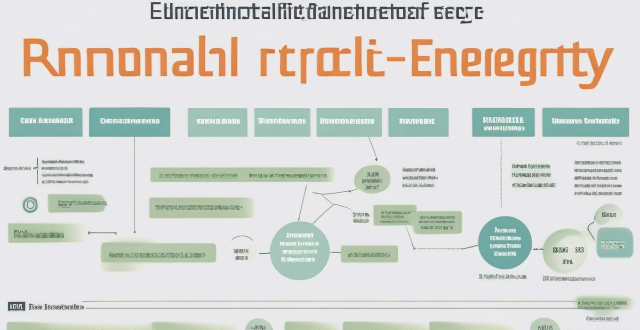
How do international climate agreements influence national policies on renewable energy ?
International climate agreements significantly shape national renewable energy policies by setting targets, offering financial aid and technology transfer, promoting innovation and collaboration, and creating market opportunities. This influence is evident in countries' ambitious renewable energy goals, their participation in global initiatives, and the growth of related industries. Such concerted efforts are crucial for achieving a sustainable, low-carbon future.

How can governments promote green job creation ?
Governments can promote green job creation by investing in renewable energy, encouraging energy efficiency, developing green infrastructure, supporting education and training, and creating market incentives. This includes offering financial incentives for renewable energy investments, implementing stricter building codes, funding public transportation systems, partnering with educational institutions for skill development, and implementing a carbon tax or cap-and-trade system. These actions will not only create jobs in the sustainable sector but also contribute to a more sustainable economy and a healthier planet.